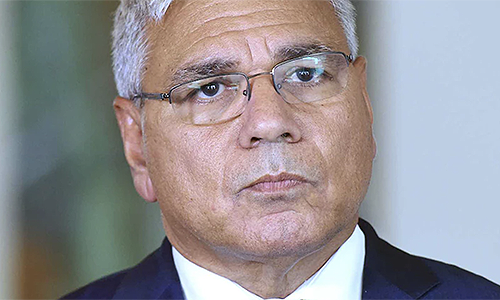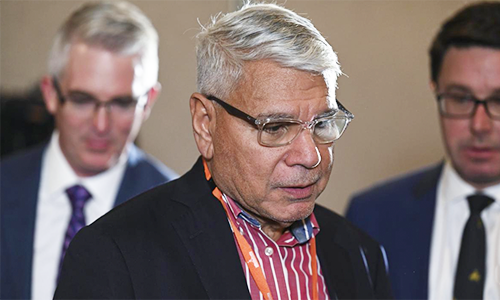
by ANTHONY DILLON – PLENTY has been said about the proposed Indigenous Voice to Parliament; some of it has been thought provoking, and much of it unfortunately, has just been the regurgitation of past offerings.
We currently have one side saying it’s racist if the Voice doesn’t get up and the other side also saying it’s racist if it does get up.

- Aboriginal Australians are essentially just Aussies living with fellow Aussies.
- Proponents of the Voice promote the harmful separatist ideology of “us-them”.
- Where cultural differences exist, that alone doesn’t prevent full participation in mainstream Australian life.
A better analysis is required.
In this article, I discuss what I feel is the most important aspect of the Voice – how will it help Aboriginal people in practical ways?
PRACTICAL
Encouragingly, proponents of the Voice have advised us that it will help Aboriginal Australians in practical ways.
For example, the Reconciliation Australia webpage states: “The establishment of an Indigenous voice to parliament would help address key problems outlined in a 10-year review of the Closing the Gap strategy.”
Further, Prime Minister Anthony Albanese, has stated that it is a “precondition” for closing the gap.
These are honourable intentions that raise hope and invite discussion.
As there seems to be detail missing on how the Voice will facilitate closure of the gap, I offer suggestions here that I believe will greatly increase the chances of it doing so.
If the Voice is to contribute to closing the gap between the health and wellbeing of Aboriginal Australians and that of non-Aboriginal Australians, there are a couple of other gaps that urgently need closing first, and proponents of the Voice would do well to understand these gaps.
The first is the chasm between the rhetoric of an assumed Aboriginal way of life defined by cultural difference and the actual way of life of most Aboriginal people.
Thanks to the “all-knowing” decrees of universities, government departments, all authoritative bodies, many believe that Aboriginal people are vastly different from other Australians.
Reasons include that they have a deep connection with the land, need warnings when there are images of deceased Aboriginal persons, are great story tellers whose daily discourse is replete with phrases such as “sovereignty never ceded,” and should only use culturally appropriate services.
DISNEYLAND
This portrayal is what former Northern Territorian Minister of the Crown, Bess Price, calls a Disneyland culture.
If the Voice provides advice on the basis of a Disneyland culture, the gap in health and wellbeing between Aboriginal Australians and that of non-Aboriginal Australians will only broaden.
In reality, for the majority of those Australians who identify as Aboriginal, their actual way of life is virtually indistinguishable from that of non-Aboriginal Australians.
They learn, work, and live not only like non-Aboriginal Australians, but alongside of them; they are essentially just Aussies living with fellow Aussies.
My concern is that proponents of the Voice will elevate culture beyond what it actually is and further promote the harmful separatist ideology of “us-them” that defines Aboriginal affairs today.
I am not saying that some Aboriginal people do not have a culture that is in some way different to the general Australian culture, but only that where cultural differences may exist, in most cases, that alone does not prevent full participation in mainstream Australian life.
Certainly, for some Aboriginal people, particularly those living in remote areas, there are significant cultural differences, in terms of custom, language, and worldviews.
For these people, I have maintained for decades, that while there may be differences, the commonalities far outweigh the differences, and these should be understood before responding to differences.
SAFE
The commonalities relate to the need for safe living environments, opportunities to learn, and opportunities to provide service to others.
Failure to recognise the commonalities, results in ineffective programs and policies that keeps cultural “experts” employed, and the people poor.
The second gap, is the gap in health and wellbeing between well-off Aboriginal people who partake in the benefits that modern Australia offers, and those Aboriginal people living in places characterised by dysfunction, and starved of fresh food, good schools, and employment opportunities.
I, like the architects of the Voice, belong to the former group in that we live in safe homes and have access to the best that Australia offers.
Indeed, we are thriving, and do so without a Parliamentary Voice, Constitutional change, or a treaty.
FAILURES
I am using my voice to ensure that those Aboriginal people who’ve been locked out of the mainstream economy are helped to be active participants of that economy which every other successful Aboriginal Australian is partaking in.
When critiquing the Voice, Indigenous commentator Warren Mundine has said “we can’t have any more failures. We’ve got to make it work”.
The architects of the Voice have yet to give the detail of what it will look like and how it will work.
I believe that if they embraced a view of Aboriginal people as having the same fundamental needs as other Australians and focused on those who are most disadvantaged, then it may work to close the gap.PC











Obviously the Voice political agenda covers a lot of secret minority activist business, for example Minister Burney has mentioned a Treaty to follow if the Voice Referendum is approved and passed.
The Hawke Labor Government was able to establish the Aboriginal & Torres Strait Islanders Commission without a referendum, and no changes to the Constitution.
And we are all Australians today and of course Australians with special needs identified must be looked after. But keep politics out of it.